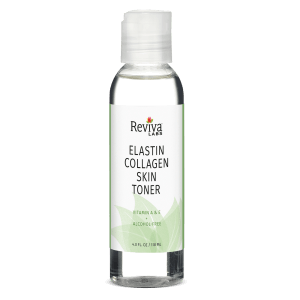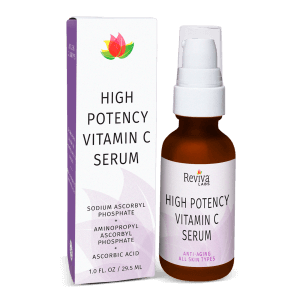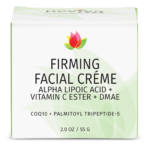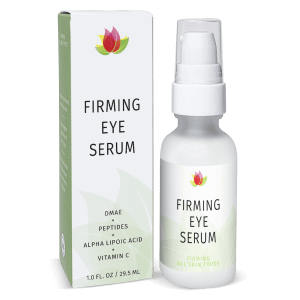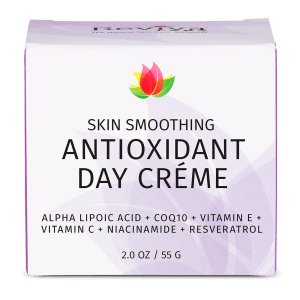Clean Beauty, Ingredients, Reviva Labs, Skin Care
How to Choose the Right Antioxidant for Your Skin
Our skin is the body’s largest organ, and it’s also its most visible one. That’s why protecting and caring for it is so important. But our skin is exposed to many harsh elements every day: ultraviolet rays from the sun, pollution, and harsh weather can all take their toll on our complexions. Fortunately, there are skincare ingredients like antioxidants that can help keep skin healthy and resilient. Antioxidants neutralize free radicals that can damage cells and accelerate aging. Antioxidants that are effective in combating UV rays are usually called “sunscreen active” or “sunscreen compatible” antioxidants.
What is an antioxidant?
An antioxidant is a molecule that neutralizes free radicals. Free radicals are unstable molecules that cause damage to cells, including those in the skin. Over time, this damage leads to wrinkles, fine lines, and discoloration. Many skincare products contain antioxidants that can help prevent and reverse this damage, leading to a healthier and more youthful appearance.
Antioxidants, like vitamins and minerals, help reduce the effects of oxidative stress that occurs when your body is exposed to toxins. Free radicals are naturally produced when your body breaks down nutrients like fats and carbohydrates, and when you’re exposed to UV rays, smoking, pollution, and certain medications. Oxidative stress can also be caused by extreme exercise. The best way to protect against oxidative stress is to consume antioxidant-rich foods, like fruits, vegetables, legumes, and nuts, as well as antioxidant-rich skincare products.
How do antioxidants benefit the skin?
The skin’s main role is to protect the body against harmful elements. It defends against the harmful effects of ultraviolet rays and environmental stresses, as well as against the harmful effects of aging. The skin’s defenses consist of two layers: the epidermis and the dermis. In healthy skin, these layers have a balanced composition of water, lipids, proteins, enzymes, and pigments, which both protect and promote the skin. A weakened epidermis, due to aging, sun damage, and other external factors, leads to a reduced defense capacity, which can result in wrinkles, age spots, and other skin problems. The most important antioxidants for the skin are vitamin C, vitamin E, and beta-carotene. They can reduce the amount of free radicals from UV radiation and other sources, which can damage the skin, causing wrinkles, dark spots, and other problems such as skin cancer. Antioxidants can also guard against the effects of premature aging and help the skin maintain its elasticity.

Deciding which antioxidant is best for you
As with other skincare products, choosing the right antioxidant for you will depend on your skin type. This way, you can ensure that you get the most out of the product and protect your skin from external factors. If you have sensitive skin, you should avoid antioxidants that have a strong scent or are too strong, like vitamin C serums. On the other hand, if you have a dry skin type, look for antioxidants that deliver a boost of hydration, like vitamin E and vitamin C. If you have oily skin, you should look for antioxidants that absorb quickly and don’t leave a greasy residue behind like niacinamide.
Vitamin C and its derivatives: The powerhouse antioxidants
Vitamin C is an excellent antioxidant that can help you achieve a brighter, more youthful complexion. It’s been shown to reduce fine lines and wrinkles, improve hydration, and boost collagen production; all of which can help you achieve a more youthful and healthier complexion. Vitamin C also has anti-inflammatory properties that can help calm redness, swelling, and irritation. Vitamin C is most effective when applied to the skin as a serum. Serums are generally more concentrated than creams and gels, so they provide more potent skincare benefits. Vitamin C serums are great for all skin types, including sensitive skin. They’re usually oil-soluble, so they’re able to penetrate deep into the skin and help protect it from free radicals. Look for serums that include vitamin C derivatives, like vitamin C ester, ascorbic acid, and tetrahexyldecyl ascorbate, which are more potent than plain vitamin C.
Vitamin E and its derivatives: The neutralizing antioxidants
Another potent antioxidant is vitamin E, which is one of the most widely used anti-aging ingredients. It’s often found in products that are specifically formulated for aging or irritated skin. Vitamin E is a powerful neutralizing antioxidant that can help reduce the appearance of wrinkles and improve the health of your skin. Vitamin E is also one of the best ingredients for protecting against UV damage and is often included in “spf” creams.
It’s most effective when used in combination with other anti-aging ingredients and is often added to moisturizers, creams, and serums. Vitamin E has a few different derivatives, like tocopherol and tocotrienol. Tocopherol, the most common form is an effective anti-aging ingredient, but it’s not as powerful as other derivatives like tocotrienol and tocopherol acetate. If you want the maximum anti-aging effects, look for products with the most potent derivatives.
Co-enzyme Q10 and adenosine triphosphate: The energy boosting antioxidants
Co-enzyme Q10 (CoQ10) is a powerful antioxidant that provides many skincare benefits, including fighting free radicals, repairing damage from UV exposure, and helping create a more even skin tone. It’s one of the best ingredients for preventing signs of aging. CoQ10 is also a potent energy booster, helping you feel less fatigued and boosting your immunity. It’s often combined with adenosine triphosphate (ATP) in skincare products, another potent antioxidant that has many skincare benefits, including fighting free radicals and helping reduce the appearance of wrinkles. ATP is particularly helpful for oily, acne-prone skin. It’s usually found in products that are formulated for oily skin, like acne treatments and pore-clearing products.
Niacinamide (Vitamin B3)
Niacinamide is a form of Vitamin B3 that has been used by dermatologists to treat a plethora of skin conditions. It and its derivatives help your skin to fight off and correct free radical damage. Some evidence points to topical niacinamide helping to increase levels of ceramides which helps alleviate the appearance of fine lines and wrinkles. Topical niacinamide also helps to reduce inflammation in the skin and it reduces the production of oil in the skin. And niacinamide offers brightening benefits against melasma or facial discolorations. Niacinamide is a very well-rounded antioxidant, and increasingly popular skin care ingredient.
Vitamin A (Retinol)
Retinol, a derivative of Vitamin A, offers an abundance of skin benefits and proven anti-aging benefits. Retinol has been shown to increase cell turnover, boost collagen production, smooth, and reduce fine lines and wrinkles, and more. It’s one of the few globally agreed upon anti-aging ingredients and it’s available in varying potencies – from prescription only to lower percentages used in skin care formulas. It’s a highly beneficial antioxidant that should become part of your skin care repertoire usually by your mid-twenties. Though there are a few natural alternatives emerging that offer the benefits of retinol without the potential issues. If your skin can tolerate Vitamin A you likely should be incorporating it.
Antioxidants are a great addition to any skincare routine
Antioxidants can help prevent and reduce the signs of premature aging, boost hydration, and even help protect against UV damage. There are many types of antioxidants, and they can be found in many different skincare products. Choosing the right antioxidant for your skin will help you achieve a healthier, younger-looking complexion. In addition, antioxidants can be used as part of a skincare routine regardless of your skin type, so everyone can benefit from them!







